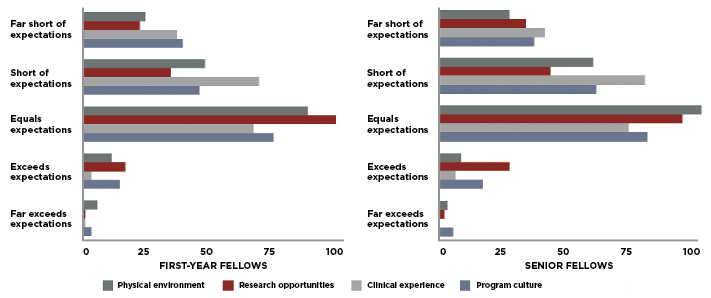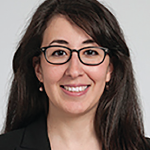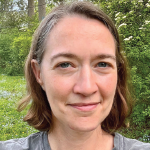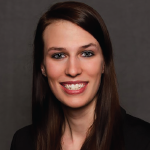
Figure 1: Trainee Expectations Regarding Matched Fellowship Programs Based on Their Impression from the Interview Day
Virtual Interviews Work
The majority of applicants perceived virtual interviews to meet, exceed or far exceed expectations related to program culture, clinical experience, research opportunities and physical environment. When compared to senior fellows who interviewed in-person the year prior, the perceptions were quite similar regarding expectations in all categories (see Figure 1, above). This may not seem surprising because information is likely available to applicants in similar ways during virtual and in-person interviews on program websites or by direct communication on interview day, with the exception of tours of the physical environment. This may help explain why most fellows preferred flexibility in choosing between virtual and in-person interviews in the future, and is important to emphasize because it highlights the effectiveness of the virtual interview process.
Although social media, particularly Twitter, may be useful for some applicants, it is not a primary source of information for applicants during the recruitment process.
Fellows Prefer Shorter Interview Days
Most fellows had interview days of six to eight hours; however, a vast majority preferred shorter interview days, lasting three to five hours in total. Desire for shorter interview days by fellows is not surprising and could be due to difficulty scheduling interviews during training, concerns about their virtual presentation due to screen fatigue, competing responsibilities, such as disruption of childcare due to the pandemic, and other reasons.
Nearly all fellows reported that all of their questions were answered by the end of the interview day and that they were able to gauge the program’s culture enough for programs to meet their expectations after the match.
It is unclear whether shorter interview days could threaten the overall positive experience for fellows by decreasing a program’s ability to assess the applicants’ overall fit for the program and answer all of an applicants’ questions in the virtual format.
Considering these factors, creative ways to shorten interview days to three to five hours while preserving the quality time spent with applicants should be sought.
Fellows Prefer Interview Format Flexibility
First-year fellows expressed a preference for flexibility to choose between virtual and in-person interviews in the future due to a variety of concerns. Although flexibility to choose between formats could be attractive by removing potential cost barriers and allowing more flexibility in scheduling, there are potential drawbacks to this approach, including the potential bias of programs for applicants who had interviewed in-person compared to applicants who interviewed virtually. This concern for potential bias could increase stress on applicants who must decide if they should attend in person or virtual for every interview invitation, and lead to concern about being perceived as less interested if they chose to interview virtually even when the decision may be due to other constraints.
Limitations
One of the limitations of this study was that it included only successfully matched applicants and was answered by 41% of the current fellows. Therefore, the results may not fully reflect the experiences and preferences of the applicants who did not match into a rheumatology fellowship or those who did successfully match but chose not to answer the survey. However, the distribution of the respondents in terms of gender and program (adult vs. pediatrics) does represent a reasonable approximation of the current rheumatology fellows in the U.S.
In Sum
For rheumatology fellowship programs considering continuing to utilize the virtual interview format in the future, these data can help guide the interview process.
 Didem Saygin, MD (@DidemSayginMD), is a second-year rheumatology fellow at the University of Chicago.
Didem Saygin, MD (@DidemSayginMD), is a second-year rheumatology fellow at the University of Chicago.
 Bethany Marston, MD (@BethMarstonMD), is an associate professor of pediatrics and medicine, the Pediatric Rheumatology Division director and the director of the Rheumatology Fellowship Program at the University of Rochester School of Medicine, New York.
Bethany Marston, MD (@BethMarstonMD), is an associate professor of pediatrics and medicine, the Pediatric Rheumatology Division director and the director of the Rheumatology Fellowship Program at the University of Rochester School of Medicine, New York.
 Nina Couette, DO (@RheumDr_Nina), is a second-year rheumatology fellow at The Ohio State University, Columbus.
Nina Couette, DO (@RheumDr_Nina), is a second-year rheumatology fellow at The Ohio State University, Columbus.
 Sara Patrizi, DO, is a second-year pediatric rheumatology fellow at Lucile Packard Children’s Hospital, Stanford University, Palo Alto, Calif.
Sara Patrizi, DO, is a second-year pediatric rheumatology fellow at Lucile Packard Children’s Hospital, Stanford University, Palo Alto, Calif.
 Adam Kilian, MD (@KilianMD), is an assistant professor of medicine and associate program director of the Adult Rheumatology Fellowship Program at the Saint Louis University School of Medicine, Missouri.
Adam Kilian, MD (@KilianMD), is an assistant professor of medicine and associate program director of the Adult Rheumatology Fellowship Program at the Saint Louis University School of Medicine, Missouri.
References
- Kilian A, Marston B. Virtual recruitment in 2020 and beyond: Rheumatology Fellowship Program Directors Survey results. The Rheumatologist. 2021 Jul 15;15(7).
- Yong TM, Davis ME, Coe MP, et al. Recommendations on the use of virtual interviews in the orthopedic trauma fellowship match: A survey of applicant and fellowship director perspectives. OTA Int. 2021 Apr 21;4(2):e130.
- Allam JS, Burkart K, Çoruhet B, et al. The virtual interview experience: Perspectives of pulmonary and critical care fellowship applicants. ATS Sch. 2022 Jan 6;3(1):9–12.
- Rockney D, et al. Virtual recruitment is here to stay: A survey of ID fellowship program directors and matched applicants regarding their 2020 virtual recruitment experiences. Open Forum Infect Dis. 2021 Aug 2;8(8):ofab383.
- Battafarano D, et al. 2015 American College of Rheumatology Workforce Study: Supply and demand projections of adult rheumatology workforce, 2015–2030. Arthritis Care Res (Hoboken). 2018 Apr;70(4):617–626.


